A report published by the Health Information and Quality Authority last year recommended the establishment of a national register for defibrillators. One year on however, no such database exists, writes Mark O'Flynn.
Listen: Morning Ireland report
In a statement, the Department of Health said the prospect of developing a register "along with a pilot programme on defibrillator availability in a selected local area, is being explored with the Pre-Hospital Emergency Care Council."
The department said that the purpose of this would be to "address the practical issues relating to the use of Automated External Defibrillators in the community."
The National Ambulance Service said that the establishment of such a database would involve "significant challenges". The challenges were also noted in HIQA’s report.
The NAS added that it is "broadly supportive of the development of a register". It said that there are a number of defibrillator devices in communities which are managed by the community, adding that these should be included on the register.
It also said that the checking and maintenance of defibrillators is "critical".
Dr David Menzies is Consultant in Emergency Medicine at St Vincent's University Hospital and co-chair of Community First Responder Ireland.
CFR Ireland is an organisation that responds to heart attack, choking, stroke and cardiac arrest only. There are 135 groups around Ireland; Wicklow has the highest number with 27 groups.
CFR groups regularly use defibrillators when responding to emergency callouts.
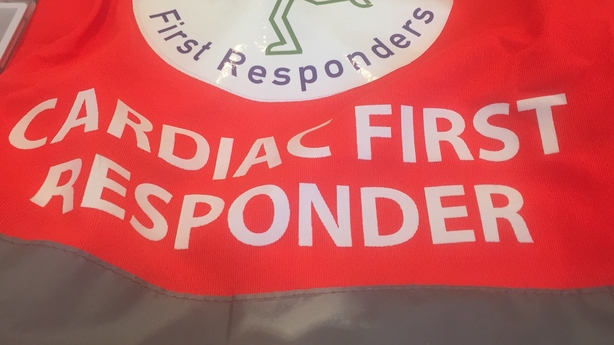
According to HIQA, there are between 8,000 and 10,000 defibrillators available in Ireland.
Dr Menzies said: "We know that there are a lot of defibrillators out there that people have spent money on purchasing. And what we are keen to know is where are they; are they still in service; are they being checked and maintained; are the batteries up-to-date; are the shock pads in date?"
Recently, the Health Products Regulatory Authority (HPRA) called on organisations with AEDs to check that the recommended safety and maintenance updates on their device are carried out.
The HPRA identified around 940 defibrillators in Ireland where a "corrective action" remains outstanding.
It warned that weather temperatures will affect a defibrillator's performance and said all devices should be regularly checked during the winter months.
Dr Menzies said that some purchased defibrillators are "locked up and nobody has checked on it for six or 12 months. Now, that’s not common but if you knew that defibrillator and it is not accessible or not serviceable, then that’s clearly a problem.
"What we would like to do is get to the point where we have a national database of defibrillators which is reliable, and ultimately we can link to the ambulance service call centre so that when somebody calls 999 … and the person is doing CPR over the phone, that if there is a defibrillator nearby, somebody else can be told that and they can go and fetch it."
Dr Menzies believes that the establishment of a national database can be achieved through the network of CFR groups around Ireland.
"What we do believe is that the network of CFR groups around the country are the mechanism to set up a database. So every town or village that has a CFR group has 20 or 30 volunteers in it who put themselves on call … and they are the same people who have the skills and the enthusiasm to check these defibrillators and to revalidate them on a national database."
There are an estimated 5,000 sudden cardiac deaths in Ireland each year with over 70% happening outside a hospital.
According to the latest figures from the Out of Hospital Cardiac Arrest Register, in 2013 22% of patients who survived cardiac arrest had defibrillation attempted before the arrival of an emergency service.
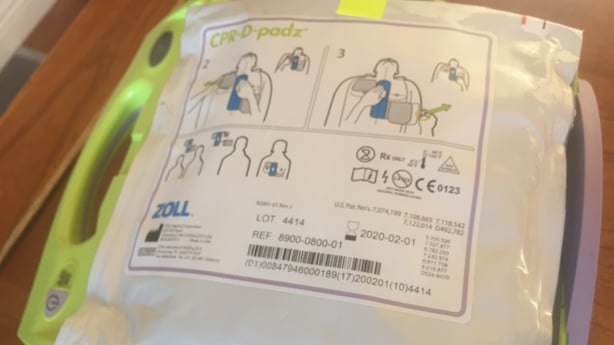
The report also states there was a 3% increase in the number of patients who had the first shock delivered before the arrival of an emergency medical service.
Joe and Olywn Dunne are both volunteers with Dalkey Community First Responder group. While out jogging, Joe had a cardiac arrest and survived through CPR and defibrillation.
He said that the company that provided the defibrillator gave him one to donate to the local community.
"My wife saw the Community First Responders in Dalkey, so we both went along, handed it over and thought 'God this is such a great thing, this is something our community can benefit from.' We both joined and are delighted to have joined. We then did the training, and after about four months or so we started doing our first calls.
"You must be in the area and you must be prepared to go on call ... You’re expected to be out the door as quickly as possible, within a minute or so.
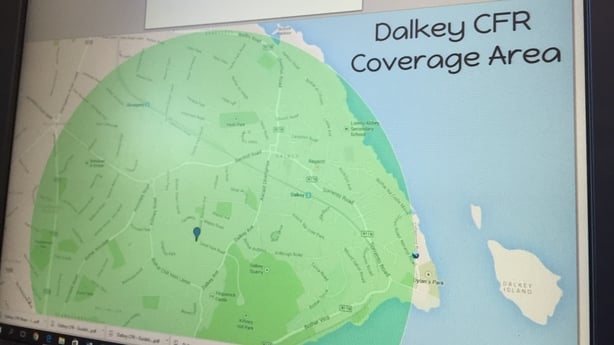
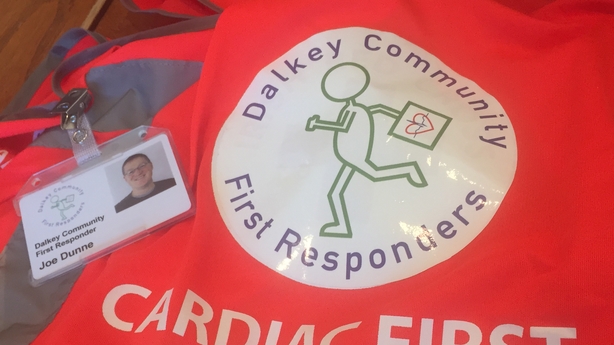
"You have the defibrillator with you, the medical bag, the Community First Responder jacket, equipment and your phone. If a person has had a cardiac arrest, then time is of the essence."
Joe said that both he and his wife find being Community First Responder volunteers very rewarding. "When you have been given a blessing like mine … I have a responsibility to try and give back to the community."
In January 2013, Berkeley Vincent from Blessington, Co Wicklow suffered a cardiac arrest during a church service.
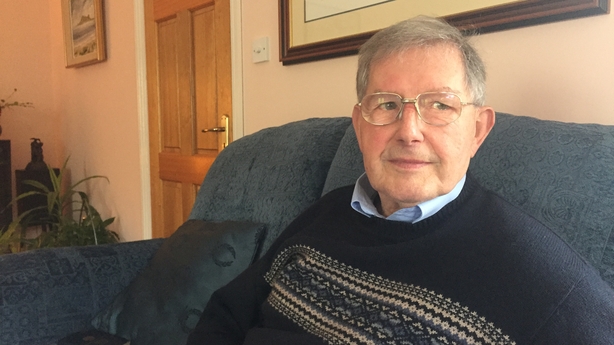
"Just as the service started, I had a cardiac arrest and I cried out ‘Oh my God!’, because I was praying and at the same time I wanted to warn my colleagues.
"Immediately then, there were three nurses; Hazel Roderick, Jenny Jacob and Michelle Allison in the service. They rushed up and proceeded to give me CPR. Then the Community First Responder group arrived and they applied the defibrillator and it worked. When they had finished, the paramedics came with the ambulance."
Berkeley says that the response of the three nurses in the service as well as the CFR group saved his life.
"The first responders have a job … I am so glad to highlight what they did because I want them acknowledged.
"My family and I are eternally grateful to them, of course I know God was close to me that day. But without the people, God couldn’t do what they did."

